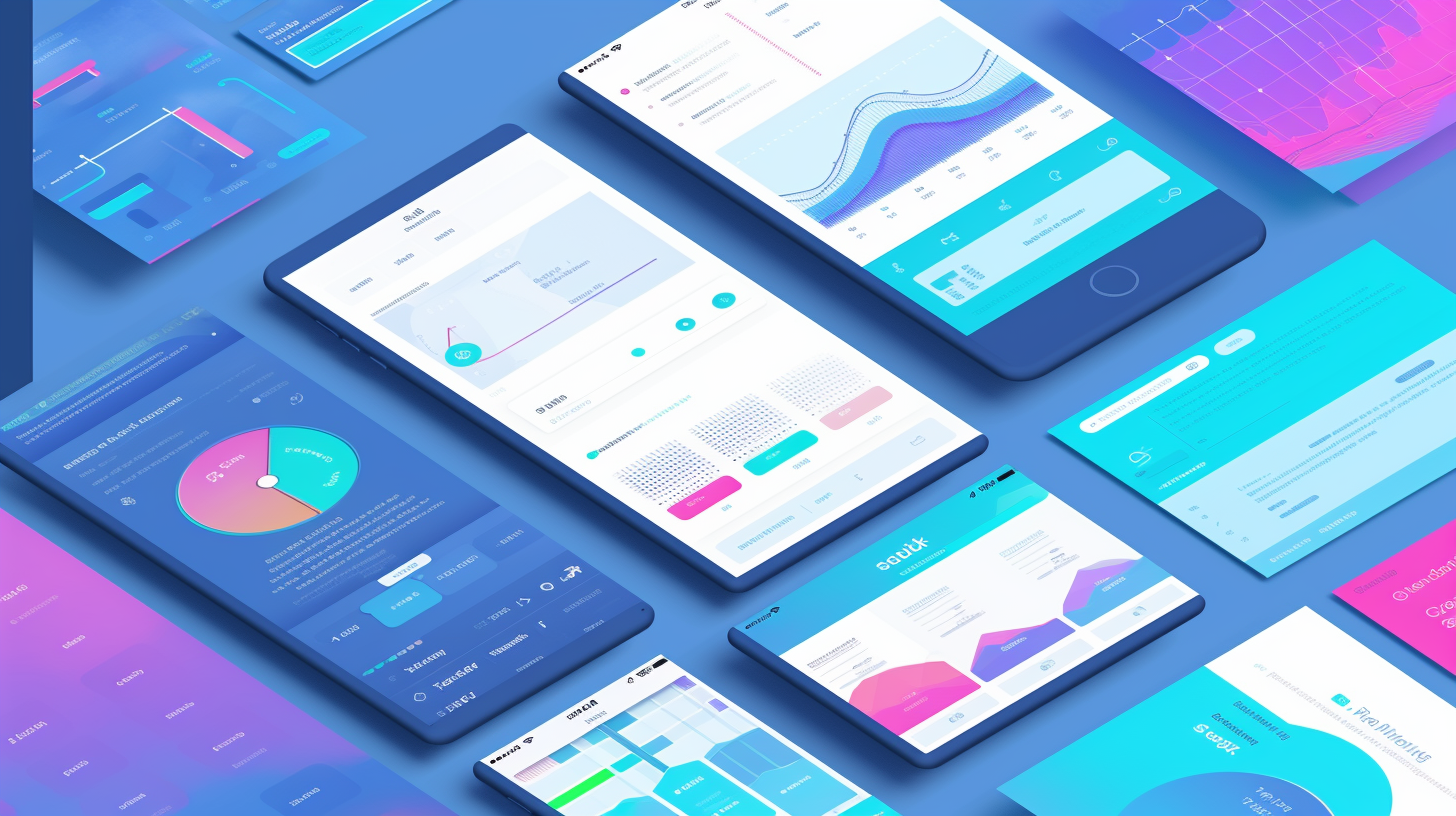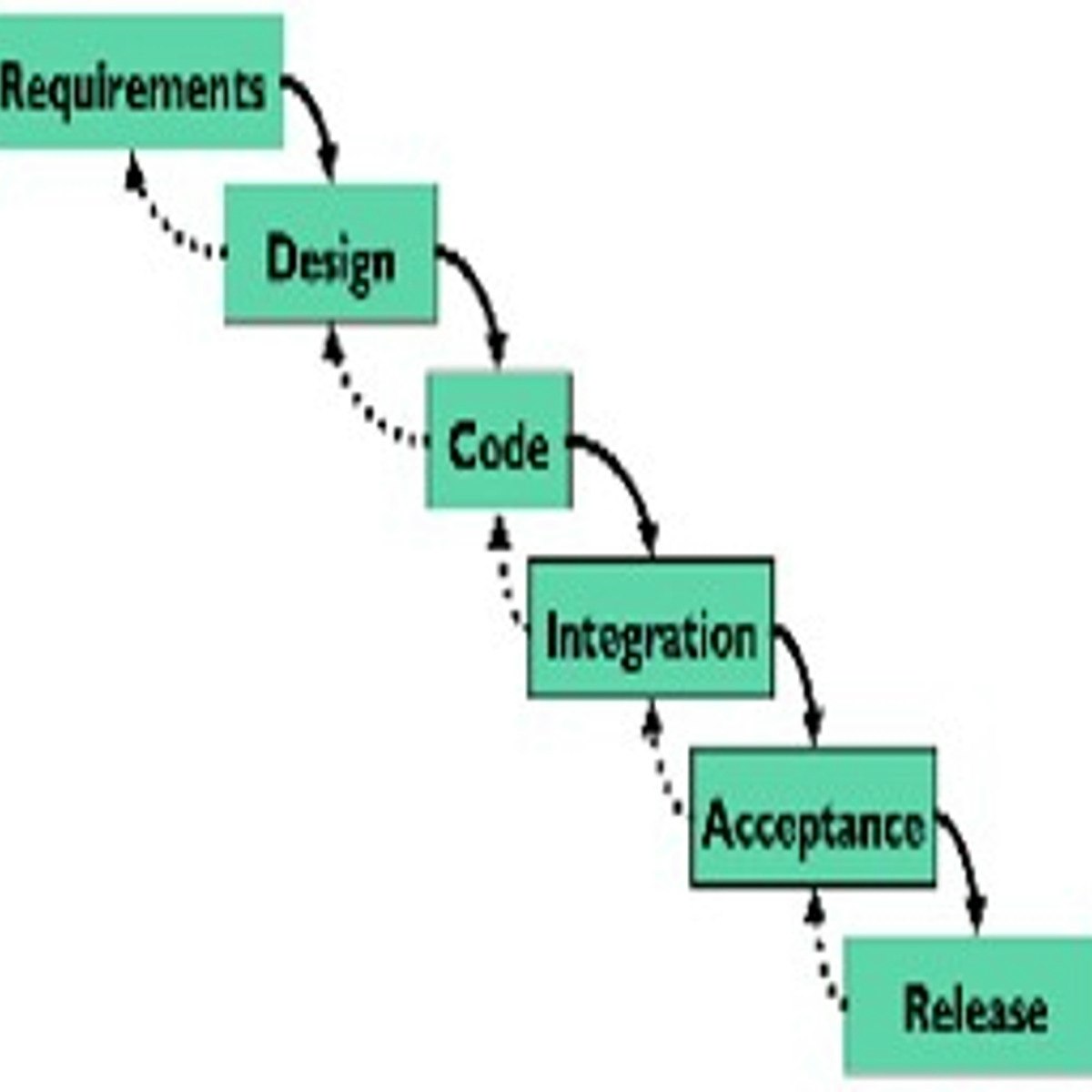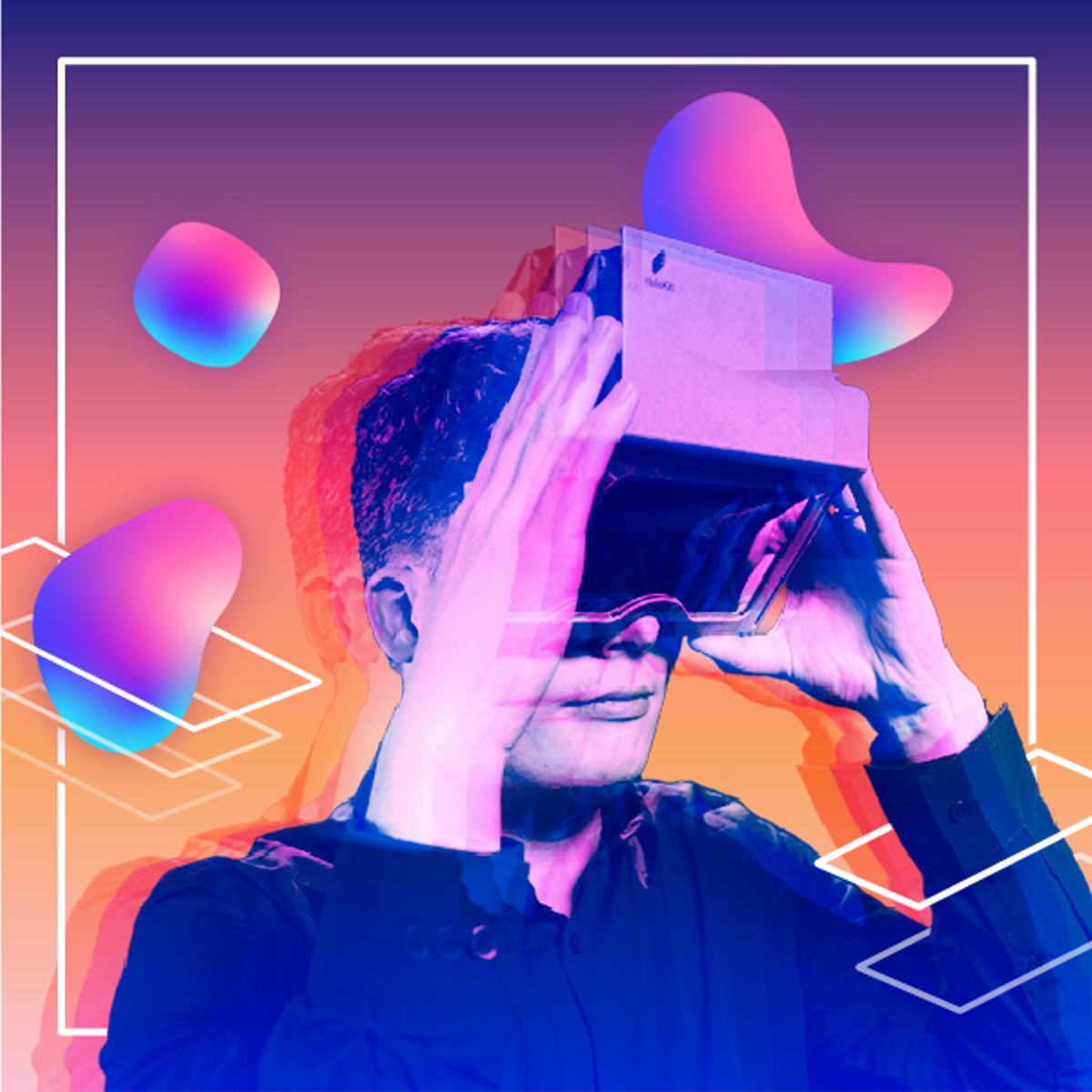UX Engineer
UX Engineer: Bridging Design and Development
A User Experience (UX) Engineer is a unique professional who blends the worlds of design and software development. They focus on the practical implementation of user interface (UI) designs, ensuring that digital products like websites and applications are not only visually appealing but also functional, accessible, and intuitive for users. Think of them as the crucial link connecting the conceptual design phase with the tangible, interactive product users engage with.
Working as a UX Engineer involves translating design mockups and prototypes into functional front-end code. This requires a strong grasp of both user-centered design principles and technical programming skills. The role is inherently collaborative, often serving as a bridge between UX/UI design teams and back-end development teams, facilitating communication and ensuring the final product aligns with both user needs and technical possibilities.
What often excites people about this career is the direct impact UX Engineers have on how people interact with technology daily. They shape the usability of the tools we rely on, from complex software applications to everyday mobile apps. The role offers a stimulating mix of creative problem-solving and technical execution, making it appealing to those who enjoy both design aesthetics and the logic of coding.
What a UX Engineer Does
The day-to-day life of a UX Engineer involves a dynamic mix of design interpretation, coding, and collaboration. They are deeply involved in bringing user interfaces to life, ensuring that the interaction design conceived by UX Designers translates effectively into a working product.
Prototyping and Interaction Implementation
A core responsibility is creating interactive prototypes. Unlike static mockups created by designers, these prototypes often involve code (HTML, CSS, JavaScript) or advanced prototyping tools to simulate real user interactions and flows. This allows teams to test usability and gather feedback on dynamic elements like animations, transitions, and complex user interface behaviors early in the development cycle.
UX Engineers use their understanding of design principles and coding skills to build these prototypes. They might use specialized prototyping tools like Figma, Axure, or Framer, or directly code components using front-end frameworks. This hands-on approach helps identify potential technical challenges or usability issues before significant development resources are invested. Increasingly, this also involves implementing microinteractions and animations to enhance the user experience.
The goal is to create prototypes that feel real enough to elicit genuine user feedback and accurately represent the intended user experience. This iterative process of building, testing, and refining prototypes is central to the UX Engineer's contribution. Techniques like wireframing and creating storyboards often precede high-fidelity prototyping.
These courses provide a good foundation in prototyping, interaction design, and related tools, crucial skills for a UX Engineer.
This course focuses specifically on animation using a common tool in the motion graphics field, relevant for complex UI animations.
Integrating with Front-End Development
UX Engineers are essentially specialized front-end developers with a deep understanding of UX. They write production-quality code, primarily using HTML, CSS, and JavaScript, to build the user-facing parts of applications.
They often work extensively with front-end frameworks like React, Vue.js, or Angular, creating reusable UI components and ensuring the interface is responsive and performs well across different devices and browsers. Their expertise ensures that the final implementation is faithful to the design specifications while adhering to web standards and best practices.
This role may involve collaborating closely with other engineers to integrate the front-end code with back-end systems and APIs. They might also contribute to establishing coding standards, setting up build processes, or managing component libraries within a design system, sometimes even bridging the gap between Figma designs and code.
Developing strong front-end skills is essential. These courses cover fundamental and advanced concepts in web development and popular frameworks used by UX Engineers.
Collaborating on User Research
While dedicated UX Researchers often lead research activities, UX Engineers frequently participate in or support these efforts. Their technical understanding allows them to provide valuable input on the feasibility of design concepts being tested and to help create prototypes specifically for research purposes, ensuring requirements are clear and testable.
They might assist in setting up usability tests, observing user sessions, or analyzing feedback related to interaction design and technical performance. Tools like Miro are often used for visualizing research data, like empathy maps or user journeys. Understanding user research methods helps UX Engineers empathize with users and make informed decisions when implementing designs.
This collaboration ensures that technical constraints and possibilities are considered early on, leading to more realistic and achievable design solutions. It also helps bridge the gap between user needs identified through research and the technical implementation.
Understanding the principles and methods of user research, including usability testing and data analysis, is valuable for UX Engineers collaborating with research teams.
These courses focus on using specific tools or techniques within the research process.
Ensuring Accessibility and Usability
A critical responsibility for UX Engineers is ensuring that digital products are accessible to users of all abilities. This involves implementing designs according to accessibility standards like the Web Content Accessibility Guidelines (WCAG) and testing interfaces using assistive technologies (e.g., screen readers).
They write semantic HTML, use ARIA attributes correctly, ensure keyboard navigability, and manage focus states, among other technical considerations. Their goal is to create interfaces that are perceivable, operable, understandable, and robust for everyone. Heuristic evaluation is another method used to identify usability problems early.
Usability testing, often done in collaboration with designers and researchers, is another key area. UX Engineers may help set up tests, observe users interacting with the interface they built, and implement changes based on findings to improve ease of use.
Accessibility is a fundamental aspect of modern web development. These resources help build expertise in creating inclusive and usable digital experiences.
This book offers foundational knowledge about usability, a core concern for UX Engineers.
Formal Education Pathways
While not the only route, formal education can provide a strong foundation for a career as a UX Engineer. Given the interdisciplinary nature of the role, relevant degrees often sit at the intersection of technology, design, and human behavior.
Relevant Degree Programs
Degrees in Computer Science (CS) provide the essential programming and technical skills required for the engineering aspects of the role. Coursework in data structures, algorithms, web development, and software engineering principles is highly relevant.
Human-Computer Interaction (HCI) programs are perhaps the most directly applicable, as they explicitly combine computer science, design, and psychology. These programs often cover user research methods, interaction design, usability evaluation, and prototyping techniques alongside technical coursework.
Other relevant fields include Information Science, Cognitive Science, Psychology (especially with a focus on human factors), and Graphic or Industrial Design, particularly if supplemented with strong technical skills through minors, electives, or self-study. Understanding human psychology is key to designing engaging experiences.
This course explores designing for user engagement, touching upon psychological principles.
Key Coursework and Experiences
Regardless of the specific major, crucial coursework includes front-end development (HTML, CSS, JavaScript), design principles (typography, color theory, layout), interaction design, user research methods, usability testing, and potentially psychology or cognitive science courses.
Practical experience is invaluable. Internships provide real-world exposure and the chance to apply learned skills. Capstone projects or significant personal projects allow students to build a portfolio demonstrating their ability to bridge design and development.
Engaging with university labs focused on HCI research or joining student clubs related to design or coding can also provide valuable experience and networking opportunities. The goal is to cultivate both the technical proficiency of an engineer and the user-centered mindset of a designer.
These foundational books cover essential principles relevant to UX Engineering, bridging design, usability, and psychology.
Online Learning and Skill Development
For many aspiring UX Engineers, especially those transitioning from other careers or complementing formal education, online learning offers a flexible and effective path. The key is combining theoretical knowledge with practical application.
The Role of Online Courses
Online courses are highly suitable for building foundational knowledge and acquiring specific technical skills. Platforms easily searchable on OpenCourser offer courses covering everything from HTML, CSS, and JavaScript fundamentals to advanced front-end frameworks, UX design principles, user research methods, and specific design tools.
These courses allow learners to study at their own pace and often provide structured paths, like Specializations or Professional Certificates. They can be used to fill knowledge gaps, learn new technologies, or gain a comprehensive understanding of the UX field. OpenCourser's Learner's Guide provides tips on structuring your learning journey and making the most of online resources.
For career changers, online learning provides an accessible entry point without the commitment of a full degree program. For students, it supplements academic coursework with practical, industry-relevant skills. For working professionals, it facilitates continuous learning and upskilling in a rapidly evolving field.
These courses offer introductions to UX design and foundational concepts, ideal for those starting their learning journey online.
Building a Portfolio and Practical Experience
Theoretical knowledge alone is insufficient. A strong portfolio showcasing practical skills is crucial for landing a UX Engineer role. Online courses often include projects, but supplementing these with personal projects, contributing to open-source projects, or volunteering for non-profits can significantly strengthen a portfolio.
Focus projects on solving real user problems, demonstrating both design thinking and technical implementation skills. Document your process: explain the problem, your research (even if informal), design iterations, technical choices, and the final outcome. Showcase your ability to create functional, user-friendly interfaces using various tools.
While certifications from online courses can demonstrate commitment and foundational knowledge, employers typically weigh a strong portfolio and demonstrable skills more heavily. Use certifications to structure your learning, but prioritize building tangible proof of your abilities.
Creating a compelling portfolio is essential. These courses focus specifically on building a UX portfolio using different platforms to showcase your skills.
Navigating the Transition
Transitioning into UX Engineering, especially from an unrelated field, requires dedication and persistence. It's not always easy, and grounding yourself in realistic expectations is important. Consider if the blend of technical and design work aligns with your interests before committing.
Leverage your existing skills. For example, software developers can focus on strengthening their understanding of UX principles and design tools. Graphic designers can focus on learning front-end coding. Connect with the UX community through online forums, social media, or local meetups (virtual or in-person) for support and networking.
Be prepared for a learning curve and potential setbacks. The field is constantly evolving, requiring a commitment to lifelong learning. But for those passionate about creating better digital experiences through a blend of design and technology, the journey can be incredibly rewarding.
This course might help you evaluate if a career in UX is the right fit for you.
Essential Tools and Technologies
Proficiency with a range of tools and technologies is fundamental for a UX Engineer. These tools span the design-to-development workflow, enabling prototyping, implementation, and collaboration.
Design and Prototyping Software
UX Engineers must be comfortable working with design files created by UX/UI designers. Common tools include Figma, Sketch, and Adobe XD. Understanding these tools allows UX Engineers to inspect designs, extract assets, understand design specifications, and sometimes contribute directly to design files or prototypes.
Figma has become particularly popular due to its collaborative nature and robust features for both design and prototyping. Adobe XD is another strong contender, while Sketch remains prevalent in Mac-based environments. Advanced prototyping might involve specialized tools like Axure (known for complex interactions), Framer (integrates closely with React), or ProtoPie.
Some UX Engineers also use code-based prototyping, leveraging front-end frameworks directly to build high-fidelity, functional prototypes. The choice of tool often depends on the project's complexity, the team's workflow, and industry standards.
Learning industry-standard design and prototyping tools is crucial. These courses offer introductions and deeper dives into popular options.
Front-End Technologies
Core front-end languages are the bedrock of a UX Engineer's skillset: HTML for structure, CSS for styling, and JavaScript for interactivity. Mastery of these is non-negotiable.
Beyond the basics, proficiency in modern JavaScript frameworks/libraries like React, Vue.js, or Angular is often required. These frameworks facilitate building complex, interactive user interfaces efficiently and managing application state. Understanding concepts like components is fundamental.
Understanding CSS preprocessors (like Sass or Less), CSS frameworks (like Tailwind CSS or Bootstrap), build tools (like Webpack or Vite), and testing frameworks is also important for developing robust and maintainable front-end code.
These courses cover essential front-end technologies and frameworks widely used in UX Engineering.
Collaboration and Version Control
UX Engineers work collaboratively with designers, developers, product managers, and researchers. Tools that facilitate communication and project management, such as Slack, Jira, or Asana, are commonly used. Collaborative whiteboarding tools like Miro or FigJam are also vital for ideation and mapping user flows.
Version control systems, primarily Git, are essential for managing codebases, collaborating with other developers, and tracking changes. Proficiency with platforms like GitHub, GitLab, or Bitbucket is standard.
Familiarity with design system documentation tools (like Storybook) helps maintain consistency and streamline the handoff between design and development.
These courses cover popular collaboration tools used in UX workflows.
Career Progression and Opportunities
The career path for a UX Engineer offers various avenues for growth, specialization, and leadership, reflecting the increasing demand for professionals who can bridge design and development.
Typical Career Ladder
Entry-level positions often start as Junior UX Engineer or sometimes Associate Front-End Developer with a UX focus. These roles typically involve implementing designs under supervision, fixing UI bugs, and learning the team's workflow and codebase.
With experience, individuals progress to mid-level UX Engineer roles, taking on more complex implementation tasks, contributing to component libraries, participating more actively in design reviews, and potentially mentoring junior team members. Developing a strategic understanding of UX becomes important.
Senior UX Engineers possess deep technical expertise and a strong understanding of UX principles. They often lead front-end architecture decisions for user interfaces, drive initiatives related to design systems or accessibility, and mentor others. Some may transition into leadership roles like UX Architect, Principal UX Engineer, or Tech Lead, overseeing technical strategy for user-facing products.
Understanding UX management, strategy, and business impact can be beneficial for career growth and leadership aspirations.
This book provides insights into applying Lean principles, relevant for strategic thinking in UX.
Specialization and Related Roles
As they gain experience, UX Engineers might specialize in areas like accessibility, design systems, front-end performance optimization, interaction design implementation (complex animations, microinteractions), UX writing, specific methodologies like Object-Oriented UX (OOUX), or designing for emerging technologies like AR/VR or voice interfaces.
The hybrid skillset of a UX Engineer also opens doors to related roles. Some may pivot more towards pure UX Design or Interaction Design if they develop stronger design and research skills. Others might move into Product Management, leveraging their understanding of both users and technology.
Conversely, individuals in roles like Web Developer or UI Designer can transition into UX Engineering by acquiring the necessary complementary skills (design principles for developers, coding for designers).
Specialization: UX Writing
UX Writing focuses on crafting the text users interact with in an interface – button labels, error messages, instructions, menu items, etc. It's about using language to guide users, clarify actions, and embody the product's voice and tone. Good UX writing makes interfaces intuitive and helpful.
While often a distinct role, UX Engineers with strong communication skills and an interest in language may specialize in this area or collaborate closely with UX Writers. Understanding how copy impacts usability and user flow is valuable.
These courses introduce the principles and practices of effective UX writing and microcopy.
Specialization: Advanced Methodologies
Some UX Engineers delve into specific methodologies to structure their approach. Object-Oriented UX (OOUX), for example, focuses on identifying core objects, relationships, and actions within a user's mental model to create more intuitive and consistent interfaces. Conducting UX Audits is another specialized skill, involving systematic evaluation of existing interfaces to identify usability and design issues.
Mastering such methodologies can differentiate a UX Engineer and enable them to tackle complex design challenges more effectively, contributing significantly during the discovery and definition phases of a project.
These courses explore specific methodologies used in the UX field.
Work Environments and Trends
UX Engineers are employed across a wide range of industries, including technology, finance, e-commerce, healthcare, and entertainment – essentially any sector developing digital products. They work in startups, large corporations, and design agencies.
Freelancing and remote work are increasingly common in the field, offering flexibility. However, the collaborative nature of the role means strong communication skills are essential, particularly in remote settings. Building a portfolio and understanding how to price projects is key for freelancers.
The demand for UX skills remains high, driven by the increasing importance of digital experiences for both web and mobile platforms. While the job market fluctuates, the unique blend of design sensibility and technical expertise makes UX Engineers valuable assets.
These resources cover aspects of freelancing and designing for different platforms.
This book focuses on designing mobile interfaces, a common task for UX Engineers.
Job Seeking, Interviewing, and Freelancing
Landing a role as a UX Engineer requires not only skills but also the ability to market oneself effectively. A strong portfolio is paramount, showcasing projects that demonstrate both design thinking and technical implementation. Preparing for interviews involves anticipating questions about your process, technical skills, design decisions, and collaborative experiences.
For those interested in freelancing, understanding how to find clients, price projects, estimate timelines, write proposals, and manage contracts is crucial. Building a network and promoting your services are ongoing activities for successful freelancers.
These resources provide guidance on navigating the job market, acing interviews, and managing a freelance career in UX.
Ethical Considerations in UX Engineering
As creators of digital interfaces that millions may use, UX Engineers share responsibility for the ethical implications of their work. Building user experiences involves choices that can impact user well-being, privacy, and fairness.
Avoiding Deceptive Practices
UX Engineers must be vigilant against implementing "dark patterns" – interface designs intentionally crafted to trick users into actions they might not otherwise take, such as signing up for recurring subscriptions or unintentionally sharing excessive personal data.
While design decisions often originate elsewhere, UX Engineers are the ones building these interfaces. They have a responsibility to raise concerns if a requested feature seems manipulative or harmful to users, advocating for ethical design choices during the implementation phase.
Understanding the psychological principles behind user behavior helps in recognizing potentially manipulative designs. The goal is to create interfaces that empower users, not exploit their cognitive biases.
Data Privacy and User Consent
When implementing features involving data collection, such as during user testing, analytics tracking, or personalization, UX Engineers must ensure compliance with privacy regulations (like GDPR or CCPA) and ethical best practices.
This includes ensuring clear communication about what data is being collected and how it will be used, obtaining explicit user consent where required, and working with back-end teams to implement secure data handling practices.
Transparency and user control over personal data are paramount. Interfaces should make privacy settings accessible and understandable, allowing users to make informed choices.
Inclusive Design and Accessibility
Ethical UX engineering demands a commitment to inclusivity and accessibility. This goes beyond mere compliance with standards; it involves actively designing and building interfaces that serve the widest possible range of users, regardless of ability, age, language, or background.
UX Engineers play a crucial role by implementing accessible code, testing with assistive technologies, and advocating for inclusive design practices throughout the development process. This ensures that digital products do not inadvertently exclude or disadvantage certain user groups.
Considering diverse user needs from the outset leads to more robust, usable, and ethical products for everyone.
This book explores the emotional and psychological aspects of design, relevant to ethical considerations.
Industry Trends Shaping UX Engineering
The field of UX Engineering is dynamic, constantly influenced by technological advancements and shifting user expectations. Staying abreast of these trends is crucial for career growth and relevance.
Impact of Artificial Intelligence (AI)
AI is increasingly integrated into design and development workflows. AI-powered tools can assist with tasks like generating design variations, automating aspects of coding, analyzing user data for insights, and creating personalized user experiences. As noted in discussions within the industry, AI is moving beyond hype towards more thoughtful integration, aiming to automate routine tasks and free up designers and engineers for strategic work.
UX Engineers may leverage AI for code completion, testing automation, or even generating initial component structures. However, AI is generally seen as a tool to augment human capabilities rather than replace them entirely, especially given the need for empathy, critical thinking, and strategic decision-making in UX. Understanding how to effectively use AI tools while maintaining user-centered principles will be a key skill, a point echoed in resources like Harvard Business Review discussions on generative AI's impact.
The focus is shifting towards designers and engineers leveraging AI for efficiency and deeper insights, allowing more time for complex problem-solving and strategic thinking, rather than full replacement of human roles.
These courses explore the intersection of AI and UX design, covering fundamentals and practical applications.
Augmented Reality (AR) and Virtual Reality (VR)
As AR and VR technologies mature, designing and engineering experiences for these immersive platforms presents new challenges and opportunities. UX Engineers may need to develop skills in 3D interaction design, spatial UI implementation, and working with specific AR/VR development platforms, as the way users interact fundamentally changes in these environments.
This involves thinking beyond traditional 2D screens to consider gesture-based interactions, voice commands, haptic feedback, and navigating virtual spaces. Ensuring usability and accessibility in these new paradigms is a key focus, requiring new approaches to design and testing.
UX Engineers with skills in platforms like Unity or Unreal Engine, combined with an understanding of human perception in immersive environments, will be well-positioned as these technologies become more mainstream in areas from entertainment to training and collaboration.
This course delves into designing experiences specifically for XR (Extended Reality) platforms.
Cross-Platform Consistency and Remote Collaboration
Users expect seamless experiences across various devices – desktops, tablets, mobiles, wearables, and even voice interfaces. UX Engineers play a critical role in implementing responsive and adaptive designs that provide consistent functionality and branding across platforms.
The rise of remote work has also emphasized the need for effective digital collaboration tools and practices. UX Engineers must be adept at communicating technical concepts clearly, participating in virtual design reviews, and managing code collaboratively using distributed version control systems.
Design systems are crucial for maintaining cross-platform consistency and facilitating collaboration, providing a shared library of reusable components and guidelines that both designers and engineers utilize.
Common Challenges in UX Engineering
While rewarding, the role of a UX Engineer is not without its challenges. Navigating the intersection of design, technology, and business goals requires adaptability and strong problem-solving skills.
Balancing User Needs and Business Objectives
A frequent challenge is mediating between the ideal user experience envisioned by designers and the practical constraints imposed by business goals, timelines, or technical limitations. UX Engineers often find themselves advocating for user needs while finding pragmatic solutions that are feasible to implement. Clearly defining requirements upfront is crucial.
This requires strong negotiation and communication skills to articulate the user impact of certain technical trade-offs and to collaborate effectively with product managers, designers, and other engineers to find the best possible balance.
Sometimes, achieving the perfect user experience isn't possible within given constraints. The challenge lies in making informed compromises that minimize negative user impact while still meeting project requirements.
This course focuses on defining and managing UX requirements effectively.
Keeping Pace with Technology
The front-end development landscape evolves rapidly. New JavaScript frameworks, CSS features, browser APIs, and build tools emerge constantly. UX Engineers must dedicate time to continuous learning to stay current with relevant technologies and best practices.
This requires a proactive approach to skill development, regularly exploring new tools, reading technical blogs, participating in online communities, and experimenting with new techniques. Failure to keep pace can lead to outdated implementation practices or difficulty working with modern codebases.
Choosing which new technologies to invest time in learning can also be challenging, requiring judgment about which trends are likely to have lasting impact versus those that might be short-lived.
Cross-Functional Communication
As liaisons between design and development, UX Engineers must effectively communicate complex ideas across different disciplines. Translating design concepts into technical requirements for developers, and explaining technical constraints to designers, requires clarity and empathy.
Misunderstandings can lead to implementation errors, wasted effort, or friction between teams. Developing a shared vocabulary and using visual aids, prototypes, and clear documentation are key strategies for bridging communication gaps.
Building strong relationships with colleagues in design, engineering, and product management is crucial for fostering a collaborative environment where challenges can be addressed openly.
Future Outlook for UX Engineers
The future for UX Engineers appears promising, driven by the ongoing digitization of services and the increasing importance placed on user experience as a competitive differentiator. However, the field is also evolving.
Job Market and Demand
The demand for professionals who can bridge design and development remains strong. According to the U.S. Bureau of Labor Statistics (BLS), employment for web developers and digital designers (a category encompassing many UX roles) is projected to grow 8% from 2022 to 2032, faster than the average for all occupations. This reflects the ongoing need for skilled professionals to create and maintain user-friendly digital interfaces.
While the tech job market experiences fluctuations, and competition for entry-level roles may be significant due to the growing number of graduates, the specialized blend of skills possessed by UX Engineers remains highly valued. Reports like the Robert Half Technology Salary Guide often highlight demand for front-end developers with UI/UX skills. The long-term outlook suggests a continued need for individuals who can effectively merge design principles with technical execution.
Demonstrating practical skills through a strong portfolio and staying current with industry trends are increasingly important factors for success in this competitive landscape.
Emerging Specializations and Automation
New areas of specialization are emerging, such as designing for voice user interfaces (VUI), AI-driven experiences, ethical AI implementation, and immersive AR/VR environments. UX Engineers who develop expertise in these cutting-edge domains may find significant opportunities.
Concerns about AI and automation replacing jobs exist, but the consensus in the UX field is that AI will primarily augment, rather than replace, human roles. AI tools can automate repetitive tasks, freeing up UX Engineers to focus on more complex problem-solving, strategic thinking, and ensuring the ethical application of technology. Adaptability and a willingness to leverage new tools will be key.
The core human skills of empathy, critical thinking, collaboration, and understanding user context remain difficult to automate and will likely become even more valuable.
Frequently Asked Questions
Navigating the path to becoming a UX Engineer often brings up practical questions. Here are answers to some common inquiries.
Can Software Developers Transition to UX Engineering?
Yes, absolutely. Software developers, especially front-end developers, already possess many of the core technical skills required. The transition typically involves deepening their understanding of user-centered design principles, UX research methods, usability, accessibility, and design tools like Figma or Sketch.
Focusing on building empathy for users, learning how to interpret design specifications accurately, and practicing communication with design teams are key aspects of this transition. Online courses focusing on UX fundamentals and design thinking can be very helpful.
Leveraging existing coding skills to build interactive prototypes and contribute to design system components can be a strong starting point for demonstrating UX Engineering capabilities.
Is a Portfolio More Important Than a Degree?
In the UX field, including UX Engineering, a strong portfolio demonstrating practical skills and problem-solving ability is often considered more important than a specific degree, especially once you have some experience. While a relevant degree (like HCI or Computer Science) provides valuable foundational knowledge, the portfolio is the primary tool for showcasing what you can actually do.
Employers want to see evidence that you can translate designs into functional, user-friendly interfaces, understand UX principles, and solve real-world problems. Your portfolio should highlight projects that demonstrate this blend of design sensibility and technical execution.
For entry-level candidates, a degree can be an advantage, but it should be supplemented by projects (personal, academic, or internship-based) that form the basis of a compelling portfolio.
How Does Salary Compare to Related Roles?
UX Engineer salaries are generally competitive and often comparable to or higher than traditional front-end developer or UX designer roles, reflecting the specialized hybrid skillset. Actual salaries vary significantly based on location, experience level, company size, and industry.
Sources like the Robert Half Technology Salary Guide provide benchmarks, often showing that roles combining front-end development with strong UI/UX expertise command premium salaries. While specific figures change year to year, UX Engineers typically fall within the upper ranges for related tech roles. For comparison, general Software Developer median salaries reported by the BLS provide a broader context, though specialized roles like UX Engineering often differ.
The combination of strong technical skills and design understanding makes UX Engineers highly valuable, often commanding strong compensation packages. Always consult multiple recent salary sources for the specific location and experience level you are interested in.
What Industries Hire the Most UX Engineers?
UX Engineers are in demand across nearly every industry that develops digital products or services. The technology sector (software companies, internet services, hardware manufacturers) is a major employer.
Other significant industries include finance and banking (online banking platforms, trading applications), e-commerce and retail (online stores, customer apps), healthcare (patient portals, medical software), entertainment (streaming services, gaming), and consulting firms.
Essentially, any organization focused on delivering high-quality digital experiences to customers or employees is likely to need professionals with UX Engineering skills, either as dedicated roles or as part of broader front-end development teams.
Do UX Engineers Need Strong Coding Expertise?
Yes, strong coding expertise, particularly in front-end technologies (HTML, CSS, JavaScript, and relevant frameworks), is a core requirement for a UX Engineer. It's what distinguishes them from UX Designers.
While they also need a good understanding of design principles, their primary role involves implementing designs through code. They need to write clean, efficient, maintainable, and accessible front-end code.
The required depth of coding expertise can vary. Some roles might lean more towards prototyping and component development within a design system, while others involve more extensive application development. However, a solid foundation in front-end engineering is essential.
How Can I Stay Updated with Evolving Tools and Trends?
Staying current requires a commitment to continuous learning. Follow influential blogs and publications in both the UX design and front-end development fields. Engage with online communities on platforms like X (formerly Twitter), LinkedIn, Reddit (e.g., r/UXDesign, r/Frontend), or specialized Slack/Discord groups.
Attend virtual or in-person conferences and webinars. Experiment with new tools and technologies through personal projects or online courses found via browsing technology topics on OpenCourser. Reading documentation and tutorials for new frameworks or libraries is also crucial.
Networking with peers can provide valuable insights into emerging trends and best practices. Don't feel pressured to master everything; focus on trends relevant to your interests and career goals.
The journey to becoming and thriving as a UX Engineer involves blending creativity with technical precision. It's a challenging but rewarding path for those passionate about crafting seamless, enjoyable, and effective digital experiences. By combining a user-centered mindset with strong engineering skills, UX Engineers play a vital role in shaping the future of human-computer interaction. Whether you are starting your career, considering a transition, or looking to deepen your expertise, resources like online design courses and programming tutorials available through OpenCourser can support your growth in this dynamic field.















































